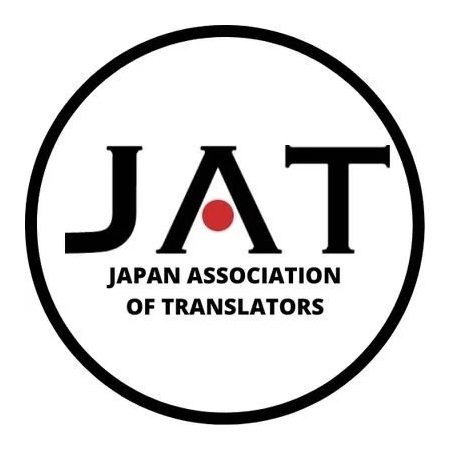
Organization releases statement outlining its opposition to machine translation.
For certain things in this world, it’s pretty hard to find someone who’s indifferent to them. Pineapple on pizza is something not a lot of people seem to just shrug their shoulders about and say “Eh, I could go either way,” as is the question of whether many-eyed Osaka-Kansai Expo mascot character Myaku Myaku is cute or creepy.
But few topics are quite as divisive these days as trying to use A.I. to replace a human doing professional work. Some say taking carbon-based lifeforms out of the equation makes work processes faster, more accurate, and more affordable, while others contend that there are things that just can’t be done by machines, no matter how much “learning” they’ve done, and so they absolutely require a human touch.
It’s a debate in which you won’t find many people with a middle-of-the-road mindset, and the Japan Association of Translators has made it very clear where they stand. Founded in 1985, the JAT is Japan’s largest translation/interpretation organization, and this week released a statement , in both English and Japanese, condemning the use of A.I. for manga translation.
The English statement reads:
Statement on the Public and Private Sector Initiative to Use AI for High-Volume Translation and Export of Manga
The Japan Association of Translators wishes to express its strong reservations regarding the public and private sector initiative to use AI for high-volume translation and export of manga.
First, in its current form, AI translation has yet to demonstrate the level of quality required to adequately portray nuance, cultural background, or character traits, which are critical to a work of fiction. Using machines to churn out mass quantities of translated works in a short amount of time (according to official announcements, 50,000 works in 5 years, with the shortest turnaround being 2 days per work) risks greatly diminishing the value of the work itself.
Moreover, excessive reliance on AI risks putting professional manga translators, who have supported the industry for years, out of work and turns valuable human resources into throw-away commodities. We are deeply concerned about the negligent disregard for so much accumulated experience and skill for the sake of cost reduction.
This is to say nothing of the risk posed by releasing hastily produced, low-quality translations into the market. Poor translations undermine consumer trust, opening the window for pirated versions to flourish. Given that manga is an important facet of Japanese culture and one of the many ways that people are first introduced to Japan, it is all the more important that the words we use to convey these stories are not undervalued.
Based on our experience and subject-matter expertise, it is the opinion of this organization that AI translation is extremely unsuitable for translating high-context, story-centric writing, such as novels, scripts, and manga. Quick and easy AI translation not only risks hurting the translation industry or the manga industry, it is not in the country’s best interests.
Our organization is deeply concerned that the public and private sector initiative to use AI for high-volume translation and export of manga will damage Japan’s soft power.
The Japan Association of Translators holds that expert translation by professional translators is essential to ensure that Japan’s exceptional manga continue to reach and engage readers around the world.
We strongly propose that now is the time for careful and constructive dialogue between manga artists, businesses (publishers), the government, translators, translator organizations, readers, and all stakeholders, to consider the appropriate use of AI and machine translation.
The statement doesn’t specify which A.I. translation initiatives it’s referring to, but there have been a number of manga publishers, of varying sizes, who have made murmurings about exploring ways to implement A.I. in translating content for non-Japanese readers. Regardless of the exact initiatives, though, the point stands that A.I. is highly unlikely to make for high-quality translations, especially from Japanese to English, and especially for manga.
Setting aside the complex question of how much localization is required or desirable when producing English versions of originally-in-Japanese manga, English and Japanese are, on a structural level, very different languages. Their base sentence structures differ greatly, and those differences get amplified when speaking either casually or theatrically, since their different base structures cause differences in what gets trimmed, tweaked, or added for comedic, dramatic, or emotional emphasis. That can frequently make literal translations weird and unwieldy, and sometimes even impossible.
Proper translation requires an understanding of nuance and context, especially since it’s common for Japanese speakers to omit things like the subject of a sentence when speaking. For example, asking someone “Anata wa doko ni ikimashita ka?”, literally “Where did you go?”, can sound worried or even accusatory, and the same goes for “Kanojo wa doko ni ikimashita ka?” (“Where did she go?”) or “Kare wa doko ni ikimashita ka?” (“Where did he go?”). Japanese speakers are much more likely to just say “Doko ni ikimashita ka?”, literally just “Where did go?”, relaying on the current situation or the preceding part of the conversation to make it clear to the listener who the question is about.
However, understanding nuance and context isn’t A.I.’s strong suit, so it’s going to struggle with phrases like “Doko ni ikimashita ka?”, which could potentially be translated any number of ways. Other possible stumbling blocks: Japanese has over a dozen ways to say “I,” more than 10 ways to say “father,” and at least three ways to say “love.” All of those convey different feelings and personalities, which need to be accounted for in a proper translation in ways beyond just translating the individual word.
▼ Machine translation is how you end up with translations like this.
All of these issues are going to be even bigger problems for A.I. when dealing with manga, as it’s a storytelling medium with a significant visual component. Much of the context that’s critical to the Japanese-to-English translation process is going to come from the artwork, something A.I. translation doesn’t reference and incorporate.
Ultimately the decision by publishers as to whether or not to use A.I. translations is likely to come down to consumer response, so if you’re on the side of the Japan Association of Translators in this debate, the best thing to do is to vote with your wallet and support manga translated by human professionals.
Source: PR Times
Top image: Pakutaso
Insert images: PR Times, SoraNews24
● Want to hear about SoraNews24’s latest articles as soon as they’re published? Follow us on Facebook and Twitter!









